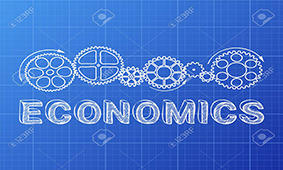
Minister: Iran’s Economy Growing Despite Sanctions


Dejpasand said on Friday that Iran’s non-oil exports have increased over the past ten months up to January 20 and 85 percent of its imports pertain to raw materials.
Addressing a gathering of Hormuzgan province’s business persons and investors, the minister said the enemies were unable to lower Iran’s oil exports down to zero, as the oil sales continue as before.
Stressing the need for using capacities of the free zones, he added that profits from economic progress in the zones should be injected to the country’s economy.
Referring to the country’s positive trade balance of 900 million dollars in the current Iranian calendar year, he said, “This has not taken place because of a decline in imports; rather due to increase in exports and this is very meaningful.”
Describing smuggling as the major challenge facing the local investors and producers, Dejpasand added that smuggling deals heavy blows to the country’s economy.
“To counter smuggling, we are trying to help customs houses to use modern technologies,” he said.
Elsewhere in his speech, the minister said that one of the golden opportunities in Hormuzgan is attracting foreign investments which should be used optimally.
Hormuzgan Province boasts numerous economic capabilities, as it can turn into the country’s economic bezel, he said.
In a related front, on January 14, Iranian President Hassan Rouhani reassured the nation that Tehran will surpass the US sanctions, adding that Washington will be unable to continue levying sanctions against his country.
Rouhani assured the Iranian nation that Iran is the party that will eventually emerge victorious from the ongoing campaign of sanctions and pressure that the country has been subjected to by the United States and its allies.
Addressing a large crowd of people during his visit to Gonbad-e Kavous in the Northern Iranian Province of Golestan, President Rouhani said, "We have no fear of the enemy plots and are sure to weather all problems.”
The president noted that Washington should know that it will “never be able to bring this great nation and its courageous leadership to its knees”.
Rouhani gave assurances that all Zionist schemes “to see us overpowered" by their ploys shall be frustrated.
"Are you planning on depriving our people of food, medicine, and equipment?" Rouhani exclaimed, noting, "We are standing in the face of the enemies with all our might."
The president added that it is tough, but possible, to surpass the US sanctions, which have targeted Iran’s banking, oil, and shipping sectors. "Our nation should know that these problems will not persist," he noted.
Rouhani hailed the level of relations between Iran and its neighbors which are "at their best," and even confirmed Tehran’s preparedness to resolve certain standing issues with "one or two" neighboring countries.
Earlier on January 05, Iranian First Vice-President Eshaq Jahangiri said that the Americans have taken aim at the Iranian people’s livelihood but their dream to bring Iran’s oil sales to zero was not fulfilled.
“US is trying to stop major Iranian income resource, that’s to say oil sales, as they in their own imagination wanted to bring oil sales to zero but they failed with the grace of God,” he said.
In a meeting with the Managing Director of Ports and Maritime Organization Mohammad Saeedi, Jahangiri added that the institute as a major sector of the country’s economy shoulders a heavy burden in sanctions era.
“At a time when foreign shipping companies did not stop cooperation with Iran, local companies shoulder a double burden so that imports and exports of goods will not come to a halt due to restrictions in the transportation sector,” he said.
Noting that the government is serious determined to solve problems that the shipping sector are faced with, he said that Iran’s Ports and Maritime Organization shoulders a heavy burden in times of sanctions.
Jahangiri also referred to the extensive capacities of Iran’s sea transportation sector, saying that it can render great services for the other countries and earn income from it.
Saeedi, for his part, talked about their problems and called for the government’s special attention to the sector to solve its challenges.
In a related front, earlier on November 10, Dejpasand downplayed the effects of the US new sanctions on his country, saying that Tehran has gained lots of experience in bypassing and coping with embargos in past decades.
"Living through sanctions conditions is not difficult. We have become experienced in the past 40 years in confronting sanctions," he added.
He noted that Iran will use all economic opportunities to confront enemies, and said, "We have earned good and effective experience in confronting sanctions since the start of the Islamic Revolution and we have devised proper plans to confront the economic embargos."
His remarks came hours after President Rouhani said American officials had admitted their incapability to stop Iran's crude sales, and the US sanctions would only leave negative impacts on imports of foodstuff, medicine and medical equipment.
"What the Iranian officials said that the US is not able to zero Iran's oil exports was proved with the US recent admission," President Rouhani said after a trilateral meeting with the parliament speaker and judiciary chief in Tehran on November 10.
"The US announced that it cannot zero Iran's oil sales because the oil prices will rise to $150; this is what we had said (before). In this region, either Iran's oil is exported or others will be in trouble as well," he added.
Rouhani referred to the US lies that the foodstuff, drugs and medical equipment were exempted from Washington's sanctions against Iran, and said, "This is incorrect. When the banking system is sanctioned, everything is affected."


Newmont nets $100M payment related Akyem mine sale

First Quantum scores $1B streaming deal with Royal Gold

Caterpillar sees US tariff hit of up to $1.5 billion this year

Gold price rebounds nearly 2% on US payrolls data

Copper price collapses by 20% as US excludes refined metal from tariffs

St Augustine PFS confirms ‘world-class’ potential of Kingking project with $4.2B value

B2Gold gets Mali nod to start underground mining at Fekola

Goldman told clients to go long copper a day before price plunge

Copper price posts second weekly drop after Trump’s tariff surprise

Codelco seeks restart at Chilean copper mine after collapse

US slaps tariffs on 1-kg, 100-oz gold bars: Financial Times

BHP, Vale offer $1.4 billion settlement in UK lawsuit over Brazil dam disaster, FT reports

NextSource soars on Mitsubishi Chemical offtake deal

Copper price slips as unwinding of tariff trade boosts LME stockpiles

SAIL Bhilai Steel relies on Danieli proprietary technology to expand plate mill portfolio to higher steel grades

Alba Discloses its Financial Results for the Second Quarter and H1 of 2025

Australia weighs price floor for critical minerals, boosting rare earth miners

Australia pledges $87M to rescue Trafigura’s Nyrstar smelters in critical minerals push

Fresnillo lifts gold forecast on strong first-half surge

US slaps tariffs on 1-kg, 100-oz gold bars: Financial Times

BHP, Vale offer $1.4 billion settlement in UK lawsuit over Brazil dam disaster, FT reports

NextSource soars on Mitsubishi Chemical offtake deal

Copper price slips as unwinding of tariff trade boosts LME stockpiles

SAIL Bhilai Steel relies on Danieli proprietary technology to expand plate mill portfolio to higher steel grades

Alba Discloses its Financial Results for the Second Quarter and H1 of 2025

Australia weighs price floor for critical minerals, boosting rare earth miners

Australia pledges $87M to rescue Trafigura’s Nyrstar smelters in critical minerals push

Fresnillo lifts gold forecast on strong first-half surge














